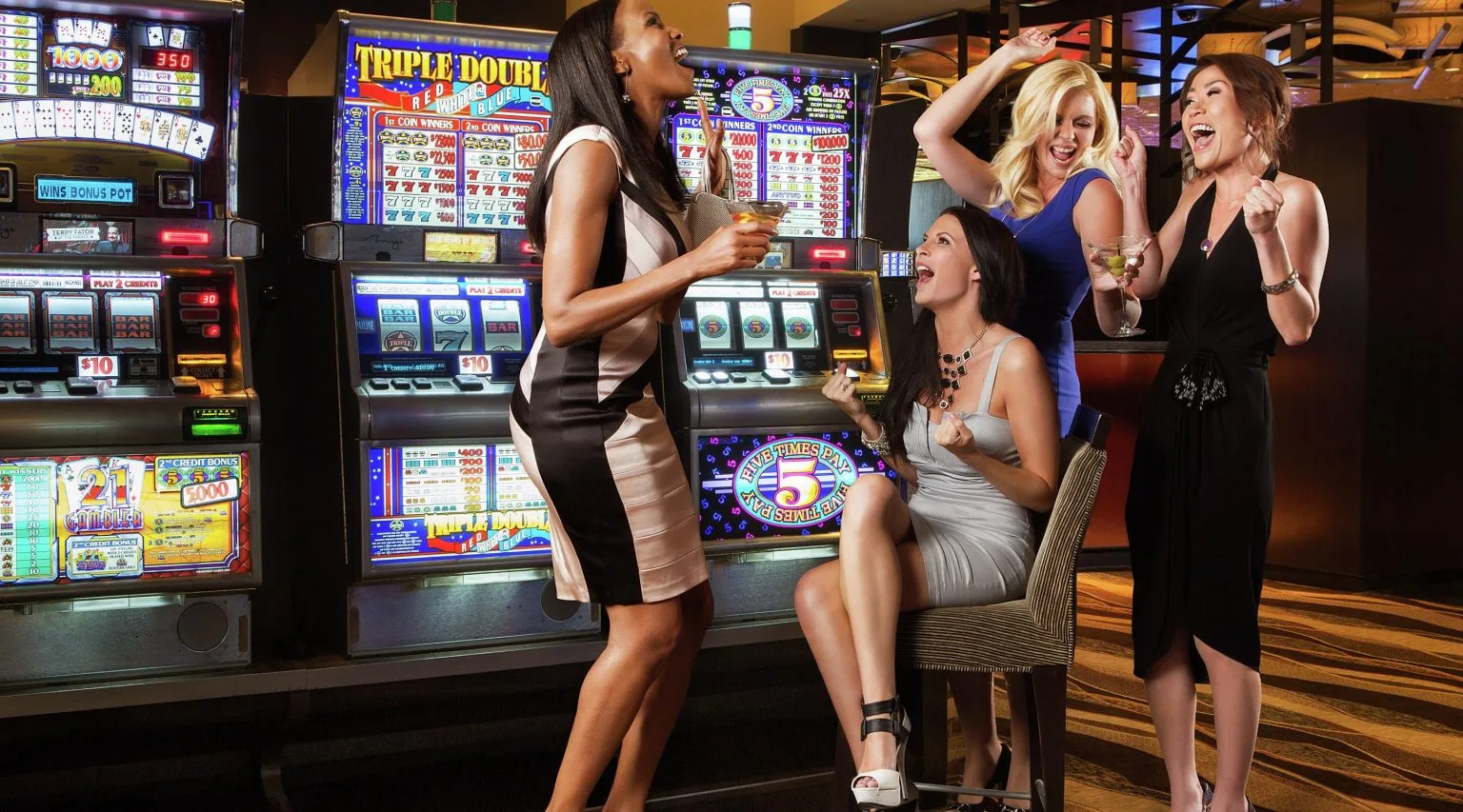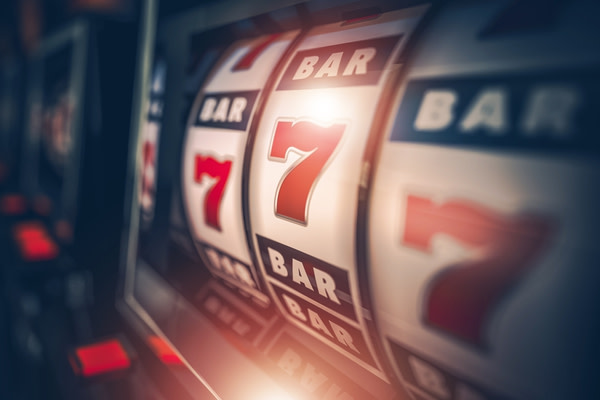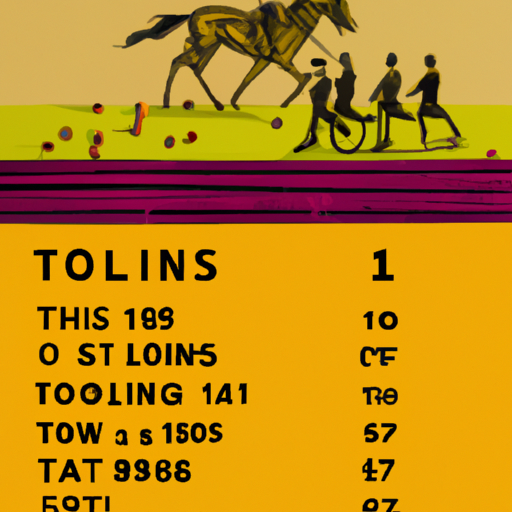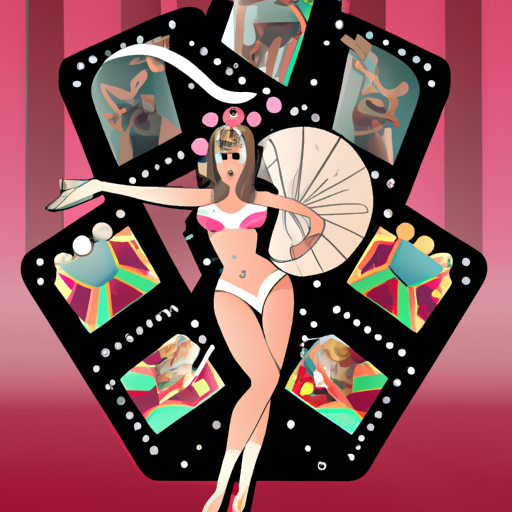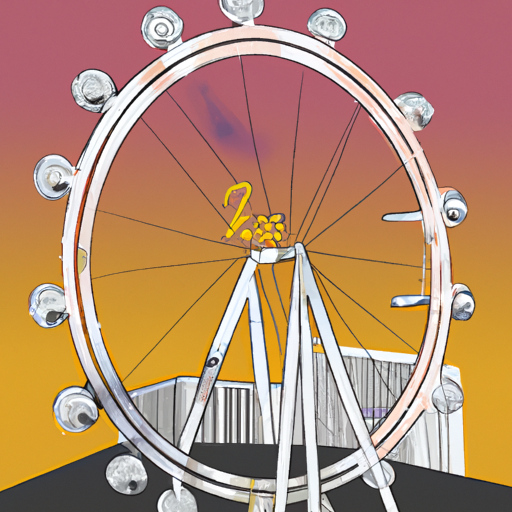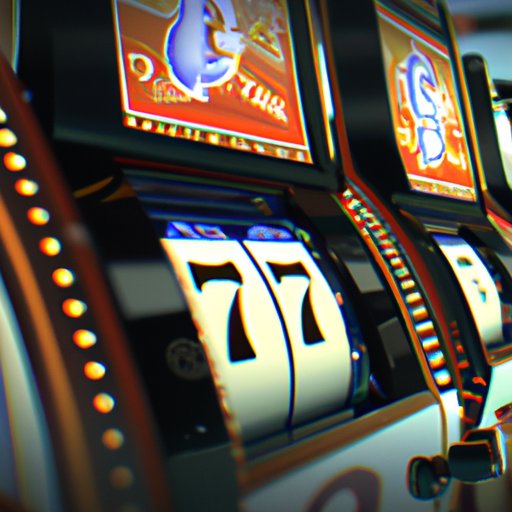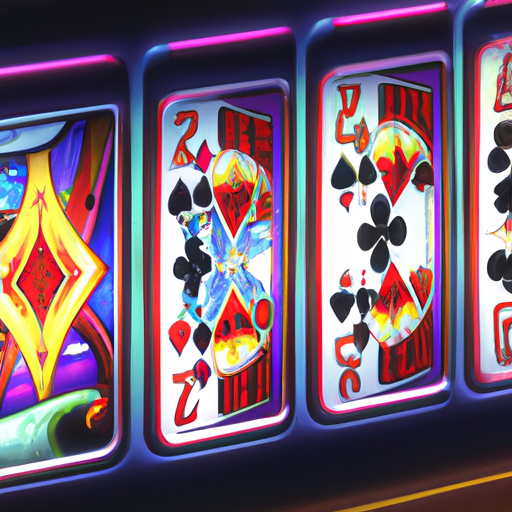
-
TopCasino Slots On-line Slots, Blackjack, Roulette, Betting & Gambling Opinions & Guides: TOC
- Introduction
- The Evolution of Slot Machines in Pop Culture
- The Rise of Poker in Mainstream Media
- The Impact of Sports Betting on Pop Culture
- The Role of Casinos in Hollywood Films
- The Influence of Gambling on Music and Music Videos
- The Connection Between Gambling and Fashion
- The History of Lotteries in Pop Culture
- The Representation of Gambling in Literature and Poetry
- The Effect of Online Gambling on Pop Culture
- The Portrayal of Gambling Addiction in Film and TV Shows
- The Relationship Between Celebrities and Gambling
- The Use of Gambling as a Plot Device in Movies and TV Shows
- The Cultural Significance of Las Vegas as a Gambling Destination
- The Role of Advertising in Promoting Gambling to Consumers
- The Future of Gambling in Pop Culture: Trends and Predictions
- Q&A
- Conclusion
Exploring the impression of playing in entertainment on consumer conduct.
Introduction
Gambling has been a half of human culture for hundreds of years, and its affect might be seen in varied varieties of pop culture. From movies to music, playing has played a important position in shaping consumer spending habits. In this article, we will discover the historical past of playing in pop culture and how it has influenced consumer spending over the years.
The Evolution of Slot Machines in Pop Culture
Gambling has been a half of human culture for hundreds of years, and it has always been a popular form of entertainment. However, it wasn't until the twentieth century that playing grew to become a important half of pop culture. The rise of slot machines in the early 1900s marked the starting of playing's affect on consumer spending.
The first slot machine was invented in 1895 by Charles Fey, a mechanic from San Francisco. The machine had three spinning reels with 5 symbols – horseshoes, diamonds, spades, hearts, and a Liberty Bell. Players would insert a nickel and pull a lever to spin the reels. If the symbols lined up appropriately, they'd win a prize.
Fey's invention was an instant hit, and quickly different producers started producing their own variations of the slot machine. By the early 1900s, slot machines had been found in bars, saloons, and different institutions throughout America.
As slot machines grew to become more popular, additionally they grew to become more subtle. Producers added more reels and symbols to extend the odds of winning. They additionally launched new features like bonus rounds and progressive jackpots.
In the Thirties, slot machines underwent another transformation after they had been legalized in Nevada. Casinos started utilizing them as a way to draw customers and generate revenue. The machines had been positioned in distinguished areas on casino flooring and had been usually themed around popular movies or TV shows.
One of the most famous examples of this was the "MGM Grand" machine, which featured photographs from MGM movies like "The Wizard of Oz" and "Gone with the Wind." These machines had been massively popular with gamblers who loved seeing their favourite film characters on the reels.
As know-how superior, so did slot machines. In the Nineteen Eighties, video slots had been launched which changed mechanical reels with digital screens. This allowed producers to create more complicated video games with better graphics and sound effects.
Video slots additionally allowed for more artistic themes, and producers started licensing popular brands like "Star Wars" and "The Simpsons." These machines had been a huge hit with fans of the franchises, who loved seeing their favourite characters on the screen.
Right now, slot machines are nonetheless a main half of pop culture. They might be found in casinos around the world and are sometimes themed around popular movies, TV shows, and video games. Producers continue to innovate with new features like virtual actuality and talent-based video games.
The affect of slot machines on consumer spending can't be overstated. In 2019, the international playing market was value over $450 billion, with slot machines accounting for a significant slice of that revenue. The reputation of these machines has led to a rise in playing addiction and different damaging penalties.
Regardless of these points, slot machines stay a beloved form of entertainment for millions of people around the world. They have turn into an integral half of pop culture and will doubtless continue to affect consumer spending for years to return.
The Rise of Poker in Mainstream Media
Gambling has been a half of human culture for hundreds of years, and it has always been a popular form of entertainment. However, in current years, playing has turn into more mainstream than ever before. One of the biggest causes for this is the rise of poker in mainstream media.
Poker has been around for hundreds of years, but it wasn't until the early 2000s that it really started to gain reputation. This was largely on account of the World Sequence of Poker (WSOP), which started airing on ESPN in 2003. The WSOP gave viewers an inside have a look at the world of professional poker, and it rapidly grew to become a hit with audiences.
As poker's reputation grew, so did its affect on pop culture. It wasn't long before we started seeing poker references in movies and TV shows. One of the most famous examples is the film Rounders, which was launched in 1998 but did not gain widespread reputation until after the poker increase. The film follows a younger man named Mike McDermott (played by Matt Damon) as he tries to make it as a professional poker player.
One other popular instance is the TV present Celeb Poker Showdown, which aired on Bravo from 2003 to 2006. The present featured celebrities playing Texas maintain 'em towards one another, and it was a huge hit with audiences. It even spawned a number of spin-off shows, including Ultimate Poker Problem and Poker Royale.
The rise of poker in pop culture had a important impression on consumer spending. As more people took an interest in poker, additionally they took an interest in playing it themselves. This led to a surge in sales for companies that offered poker chips, cards, and different equipment.
It additionally led to a rise in online playing. In the early days of online playing, many people had been hesitant to belief these sites with their cash. However as poker grew to become more mainstream and respected sites like PokerStars emerged, more people started to really feel comfy playing online.
In fact, not everybody was joyful about the rise of poker in pop culture. Some people noticed it as a damaging affect on society, arguing that it inspired playing addiction and irresponsible spending. Others noticed it as a innocent form of entertainment that might be loved responsibly.
Regardless of the place you stand on the challenge, there's no denying that poker has had a important impression on pop culture and consumer spending. It's hard to think about what the world of playing would appear to be today if it weren't for the rise of poker in mainstream media.
In conclusion, the rise of poker in pop culture has been one of the most important developments in the world of playing in current years. It has influenced consumer spending, led to a rise in online playing, and sparked debates about the position of playing in society. Whether or not you love it or hate it, there's no denying that poker has left its mark on our culture.
The Impact of Sports activities Betting on Pop Culture
Gambling has been a half of human culture for hundreds of years, and it has always had a important impression on society. In current years, sports betting has turn into more and more popular, and it has had a important affect on pop culture. From movies to TV shows, sports betting has turn into a widespread theme in entertainment media.
One of the most important ways that sports betting has influenced pop culture is thru its portrayal in movies. Movies like "Rounders" and "On line casino" have helped to glamorize playing and make it look like an exciting way to make cash. These movies have additionally helped to create a sense of mystique around playing, making it look like one thing that only the elite can do.
One other way that sports betting has impacted pop culture is thru its presence in TV shows. Exhibits like "Ballers" and "The League" have made sports betting look like a fun and exciting way to enjoy sports. These shows have additionally helped to normalize sports betting, making it look like one thing that everybody does.
Sports activities betting has additionally had an impression on consumer spending. As more people turn into in sports betting, they're more more likely to spend cash on issues like tickets to sporting occasions or merchandise from their favourite teams. This elevated spending can assist enhance the financial system and create jobs in the sports trade.
However, there are additionally issues about the impression of sports betting on society. Some people fear that it may result in a rise in downside playing and addiction. Others are involved about the potential for corruption in the world of professional sports.
Regardless of these issues, it appears clear that sports betting will continue to be a important half of pop culture for years to return. As more states legalize sports betting, we will count on to see even more movies, TV shows, and different varieties of entertainment that includes this popular pastime.
In conclusion, the historical past of playing in pop culture is long and storied, with sports betting being one of the most current and influential developments. From movies to TV shows, sports betting has turn into a widespread theme in entertainment media, and it has had a important impression on consumer spending. Whereas there are issues about the potential damaging effects of sports betting, it appears clear that it will continue to be a popular pastime for a few years to return. As always, it is important to gamble responsibly and search assist if you or someone you know is struggling with downside playing.
The Role of Casinos in Hollywood Movies
Gambling has been a popular pastime for hundreds of years, and it has had a important impression on pop culture. One of the most distinguished ways that playing has influenced pop culture is thru its portrayal in Hollywood films. Casinos have played a important position in many movies, and their depiction has influenced consumer spending.
The first casino film was launched in 1960, titled Ocean's Eleven. The film starred Frank Sinatra, Dean Martin, and Sammy Davis Jr., among others. The film was a hit, and it set the stage for future casino-themed films. In the following years, a number of different movies had been launched that featured casinos as their most important setting.
One of the most iconic casino movies is Martin Scorsese's On line casino, which was launched in 1995. The film starred Robert De Niro and Sharon Stone and was based on the true story of Frank Rosenthal, who ran a number of Las Vegas casinos in the Seventies. The film was a crucial and industrial success and helped to cement Las Vegas as the playing capital of the world.
One other popular casino film is Rounders, which was launched in 1998. The film starred Matt Damon and Edward Norton and focused on the underground world of high-stakes poker. The film helped to popularize Texas Hold'em poker and impressed many people to take up the game.
On line casino-themed movies haven't only been entertaining but have additionally had an impression on consumer spending. After the launch of Ocean's Eleven, there was a surge in demand for tuxedos and formal put on as people wished to decorate like their favourite characters from the film. Equally, after Rounders was launched, there was a rise in curiosity in poker tournaments and online poker sites.
The affect of casino movies on consumer spending will also be seen in Las Vegas itself. Many casinos have capitalized on their look in films by offering themed experiences for guests. For instance, Caesars Palace has a suite named after the Ocean's Eleven character Danny Ocean, and the Bellagio has a fountain present that's reminiscent of the film's ultimate scene.
On line casino movies have additionally had an impression on the playing trade. The reputation of poker after Rounders was launched led to a rise in the quantity of poker rooms in casinos. Equally, the success of On line casino helped to spice up tourism in Las Vegas and led to a rise in the quantity of casinos being constructed.
However, not all casino movies have had a constructive impression on consumer spending. The 2008 film 21, which was based on the true story of a group of MIT college students who used card counting to win at blackjack, led to a rise in curiosity in card counting strategies. This resulted in many casinos altering their guidelines and making it more difficult for gamblers to count cards.
In conclusion, casino-themed movies have played a important position in pop culture and have influenced consumer spending. They have helped to popularize certain video games and have led to a rise in demand for formal put on and themed experiences. However, they've additionally had damaging effects, resembling resulting in adjustments in casino guidelines. Regardless of this, casino movies continue to be popular with audiences and are more likely to stay so for years to return.
The Affect of Gambling on Music and Music Videos
Gambling has been a popular pastime for hundreds of years, and it has had a important impression on pop culture. One of the most notable ways that playing has influenced pop culture is thru music and music movies.
Music has always been a reflection of society, and playing has been a half of society for as long as anyone can bear in mind. Many musicians have written songs about playing, and these songs have turn into some of the most iconic in music historical past.
One of the earliest examples of playing in music is the tune "The Deck of Playing cards," which was first recorded in 1948 by Tex Ritter. The tune tells the story of a soldier who makes use of a deck of cards to show his fellow troopers about God. The tune grew to become an instant hit and has since been coated by quite a few artists.
One other classic playing tune is "Luck Be a Girl" from the musical Guys and Dolls. The tune was written by Frank Loesser and first carried out on Broadway in 1950. It has since been coated by many artists, including Frank Sinatra, who made it one of his signature songs.
In the Seventies, playing grew to become even more prevalent in music with the rise of disco. One of the most famous disco songs about playing is "The Gambler" by Kenny Rogers. The tune tells the story of a gambler who gives advice to a younger man on how to play cards. The tune grew to become a huge hit and helped to cement Rogers' status as one of the biggest stars in nation music.
In current years, playing has continued to be a popular theme in music movies. One instance is Girl Gaga's video for "Poker Face." The video features Gaga playing poker with her associates whereas carrying outrageous outfits and dancing around her residence.
One other instance is Rihanna's video for "Russian Roulette." The video features Rihanna playing Russian roulette with her lover whereas singing about taking dangers in love.
These music movies have helped to make playing even more mainstream and have influenced consumer spending. Many people who watch these movies are impressed to try their luck at the casino or online playing sites.
In addition to music movies, playing has additionally been featured in movies and tv shows. One of the most famous examples is the film Rounders, which was launched in 1998. The film tells the story of a younger man who turns into a professional poker player and features some of the biggest names in Hollywood, including Matt Damon and Edward Norton.
One other popular instance is the tv present Las Vegas, which aired from 2003 to 2008. The present adopted a group of workers at a fictional casino in Las Vegas and featured quite a few scenes of playing and high-stakes action.
These movies and TV shows have helped to make playing even more popular among customers. Many people who watch these shows are impressed to visit casinos or try their luck at online playing sites.
In conclusion, playing has had a important impression on pop culture, notably in music and music movies. From classic songs like "The Deck of Playing cards" to trendy hits like Girl Gaga's "Poker Face," playing has been a popular theme in music for many years. Moreover, movies and TV shows like Rounders and Las Vegas have helped to make playing even more mainstream. As a consequence, many customers have been influenced to spend cash on playing actions, each online and offline.
The Connection Between Gambling and Trend
Gambling has been a half of human culture for hundreds of years, and it has always been associated with glamour and luxury. In the previous, playing was only accessible to the rich, but with the rise of pop culture in the twentieth century, it grew to become more mainstream. Pop culture has played a important position in shaping our notion of playing, and it has influenced consumer spending in many ways.
One of the most notable connections between playing and pop culture is fashion. Gambling has always been associated with high-finish fashion, and this connection might be traced again to the early twentieth century. In the Nineteen Twenties and Thirties, when playing was unlawful in most parts of the world, underground casinos had been usually situated in upscale lodges and clubs. These institutions attracted rich patrons who dressed in their best apparel to gamble.
As playing grew to become more mainstream in the mid-twentieth century, its association with fashion only grew stronger. Las Vegas, which grew to become generally known as the playing capital of the world in the Fifties, was additionally a hub for fashion. The city's casinos had been designed to appear to be luxurious resorts, full with high-finish restaurants and designer outlets. This created an environment the place dressing up was not only inspired but anticipated.
The connection between playing and fashion continued to evolve all through the latter half of the twentieth century. In the Seventies and Nineteen Eighties, casinos started internet hosting fashion shows as a way to draw more customers. These shows featured fashions carrying designer clothes whereas strolling around casino flooring or on stage throughout performances by famous musicians.
In current years, playing has turn into even more intertwined with fashion due to social media influencers and celebrities. Many influencers have constructed their brands around showcasing their glamorous life that usually include journeys to casinos or playing online casino video games from house. Celebrities like Kim Kardashian West have additionally been identified to frequent casinos whereas carrying designer clothes.
The affect of pop culture on consumer spending might be seen in the fashion trade's embrace of playing-impressed designs. Many high-finish designers have created collections that feature parts of playing, resembling playing card motifs or roulette wheel patterns. These designs are sometimes worn by celebrities and influencers, which additional reinforces the connection between playing and fashion.
The impression of pop culture on consumer spending will also be seen in the rise of online playing. The internet has made it easier than ever to gamble from house, and this has led to a surge in online casino sites. These sites usually use pop culture references to draw customers, resembling offering slot machines based on popular TV shows or movies.
In conclusion, the connection between playing and fashion has been a important half of pop culture for over a century. Pop culture has influenced our notion of playing, making it more accessible and glamorous. This affect might be seen in the way casinos are designed, the fashion worn by patrons, and even in the designs created by high-finish fashion designers. As online playing continues to develop in reputation, it is probably going that pop culture will continue to play a position in shaping our notion of this trade and influencing consumer spending habits.
The History of Lotteries in Pop Culture
Gambling has been a half of human culture for hundreds of years, and it has always been a popular form of entertainment. In current years, playing has turn into even more prevalent in pop culture, with movies, TV shows, and video games that includes playing as a central theme. This elevated publicity to playing in pop culture has had a important impression on consumer spending.
One of the earliest varieties of playing in pop culture was the lottery. Lotteries have been around for hundreds of years, and they had been usually used as a way to lift cash for public initiatives like roads and bridges. In the United States, lotteries had been used to fund the Revolutionary Conflict and later to finance public faculties.
In the twentieth century, lotteries grew to become more widespread as states started to legalize them as a way to generate revenue. The first trendy state lottery was established in New Hampshire in 1964, and by the finish of the decade, a number of different states had adopted suit.
As lotteries grew to become more popular, additionally they grew to become more distinguished in pop culture. Films like "The Sting" (1973) and "Fortunate Numbers" (2000) featured characters who had been concerned in lottery scams or making an attempt to win big prizes. TV shows like "The Simpsons" and "Household Man" have additionally featured episodes centered around lotteries.
The reputation of lotteries in pop culture has had a important impression on consumer spending. Research have proven that people are more doubtless to purchase lottery tickets after they see them featured in movies or TV shows. This is named the "lottery impact," and it can result in elevated spending on different varieties of playing as well.
Lotteries will not be simply popular in movies and TV shows; they're additionally a widespread theme in video games. Many online casino video games feature lottery-style gameplay mechanics, resembling scratch-off tickets or spinning wheels that supply random prizes.
These video games are designed to be addictive, and they usually encourage gamblers to spend real cash in order to win virtual prizes. This has led to issues about the impression of playing on younger people, as many video games are marketed in the direction of kids and youngsters.
Regardless of these issues, lotteries stay a popular form of entertainment in pop culture. They provide the likelihood to win big prizes for a small funding, and they're usually seen as a way to flee from the stresses of on a regular basis life.
However, it is important to do not forget that playing may also have damaging penalties. It could possibly result in addiction, financial problems, and different points that may have a important impression on people's lives.
In conclusion, the historical past of lotteries in pop culture is a fascinating one. From their early use as a way to fund public initiatives to their current status as a popular form of entertainment, lotteries have had a important impression on consumer spending. Whereas they are often fun and exciting, it is important to do not forget that playing ought to always be approached with warning and accountability.
The Illustration of Gambling in Literature and Poetry
Gambling has been a popular pastime for hundreds of years, and it has been represented in varied varieties of art all through historical past. Literature and poetry have played a important position in shaping the notion of playing in pop culture. From classic novels to trendy-day poetry, playing has been portrayed as each a thrilling and dangerous exercise.
One of the earliest examples of playing in literature might be found in the historical Greek epic poem, The Iliad. In this epic, the gods are depicted as playing video games of likelihood with one another, which in the end results in the downfall of one of them. This illustration of playing as a game played by highly effective beings set the tone for how it can be perceived in future works.
In Shakespeare's plays, playing is commonly used as a metaphor for life itself. In Hamlet, for instance, Polonius advises his son Laertes to "neither a borrower nor a lender be" and warns him towards "the dice." This advice means that playing isn't only dangerous but additionally morally questionable.
The nineteenth century noticed an explosion of literature that featured playing as a central theme. One notable instance is Fyodor Dostoevsky's novel The Gambler, which tells the story of a younger man who turns into hooked on roulette. The novel explores themes resembling addiction, greed, and the harmful power of playing.
In more current times, playing has continued to be a popular topic in literature. Michael Chabon's Pulitzer Prize-winning novel The Amazing Adventures of Kavalier & Clay features a character who turns into obsessed with poker after shedding his job throughout the Great Depression. The novel explores how playing can provide an escape from actuality but additionally result in smash.
Poetry has additionally played a position in shaping the notion of playing in pop culture. In T.S. Eliot's poem The Waste Land, he writes about "a crowd flowed over London Bridge, so many / I had not thought death had undone so many." This line is commonly interpreted as a reference to the crowds of people who would collect to watch horse races and different varieties of playing.
In Sylvia Plath's poem "The Applicant," she makes use of the metaphor of a game present to critique the societal strain positioned on girls to adapt to conventional gender roles. The poem ends with the strains, "Will you marry it, / marry it, marry it." This repetition of the phrase "marry" means that society views marriage as a game in which girls are anticipated to take part.
The illustration of playing in literature and poetry has had a important impression on how it is perceived in pop culture. It has been portrayed as each thrilling and dangerous, offering an escape from actuality but additionally resulting in addiction and smash. These representations have influenced consumer spending on playing, as people are drawn to the excitement and thrill depicted in these works.
In conclusion, the historical past of playing in pop culture might be traced via its illustration in literature and poetry. From historical Greek epics to trendy-day novels and poems, playing has been portrayed as each a thrilling and dangerous exercise. These representations have formed how playing is perceived in society and have influenced consumer spending on this popular pastime.
The Effect of On-line Gambling on Pop Culture
Gambling has been a half of human culture for hundreds of years, and it has always had a important impression on society. From historical civilizations to trendy times, playing has been a supply of entertainment, social interplay, and even financial progress. In current years, the rise of online playing has had a profound impact on pop culture and consumer spending.
On-line playing has turn into more and more popular in current years, with millions of people around the world collaborating in varied varieties of online betting. This development has not gone unnoticed by the entertainment trade, which has integrated playing into many popular movies, TV shows, and video games.
One instance of this is the James Bond franchise. The character of James Bond is thought for his love of playing, and many of the films feature scenes set in casinos or different playing institutions. This has helped to create an association between playing and sophistication or glamour in popular culture.
Equally, many TV shows have featured storylines involving playing. One notable instance is Breaking Bad, which features a character who turns into hooked on online poker. This storyline helped to lift consciousness about the risks of online playing addiction and its potential impression on people and households.
Video video games have additionally integrated parts of playing into their gameplay. Many popular mobile video games feature “loot packing containers,” which are virtual gadgets that gamblers can purchase with real cash in order to receive random rewards. These loot packing containers have been criticized for selling addictive conduct and encouraging younger people to gamble.
The affect of online playing on pop culture extends past simply entertainment media. It has additionally had a important impression on consumer spending habits. On-line betting sites provide easy access to a broad range of betting options, from sports betting to casino video games. This comfort issue has made it easier than ever for people to gamble from the consolation of their own properties.
This ease of access has led to a rise in consumer spending on online playing sites. In line with a report by Statista, international online playing revenue was estimated at $59 billion in 2020, and is projected to achieve $92.9 billion by 2025. This progress is pushed by the rising reputation of online playing, as well as the growth of legal online betting markets in many countries.
The impression of online playing on consumer spending will also be seen in the rise of mobile payment options. Many online betting sites now provide mobile payment options resembling Apple Pay or Google Pockets, making it even easier for customers to place bets and spend cash.
However, this enhance in consumer spending on online playing has raised issues about the potential for addiction and financial hurt. On-line playing addiction can have severe penalties for people and households, including financial smash and relationship breakdowns.
In response to those issues, many countries have carried out rules to restrict the availability of online playing or to advertise accountable playing practices. For instance, in the UK, all licensed online betting sites are required to provide details about accountable playing and provide instruments resembling self-exclusion or deposit limits.
In conclusion, the rise of online playing has had a important impression on pop culture and consumer spending habits. The entertainment trade has integrated playing into many popular movies, TV shows, and video games, creating an association between playing and glamour or sophistication. However, this development has additionally led to a rise in consumer spending on online betting sites, elevating issues about addiction and financial hurt. As online playing continues to develop in reputation, it is important for regulators and trade stakeholders to work collectively to advertise accountable playing practices and shield susceptible customers.
The Portrayal of Gambling Habit in Movie and TV Exhibits
Gambling has been a popular pastime for hundreds of years, and it has always been a topic of fascination in pop culture. From classic movies like The Sting to trendy TV shows like Breaking Bad, playing has been portrayed in varied varieties of media. However, one side that has gained important consideration is the portrayal of playing addiction.
Gambling addiction is a significant issue that impacts millions of people worldwide. It's characterised by an uncontrollable urge to gamble regardless of the damaging penalties it might have on one's life. In pop culture, this challenge has been explored in depth via varied films and TV shows.
One of the most iconic portrayals of playing addiction in film is Martin Scorsese's On line casino. The film follows the story of Sam "Ace" Rothstein (played by Robert De Niro), a professional gambler who runs a casino in Las Vegas. All through the film, we see how his obsession with playing leads him down a dangerous path, in the end ensuing in his downfall.
Equally, the TV present Breaking Bad additionally explores the theme of playing addiction via its character Jesse Pinkman (played by Aaron Paul). In one episode, Jesse turns into hooked on playing poker and finally ends up shedding all his cash. This leads him to make some questionable choices which have extreme penalties afterward in the series.
These portrayals of playing addiction have had a important impression on consumer spending habits. Research have proven that people who watch movies or TV shows that includes playing are more more likely to have interaction in comparable conduct themselves. This phenomenon is named "media priming," the place publicity to certain media influences our ideas and actions.
For instance, after the launch of Ocean's Eleven in 2001, there was a surge in demand for high-finish casinos and luxury lodges featured in the film. Equally, after the success of Rounders (1998), there was a rise in curiosity in poker tournaments and online poker sites.
However, not all portrayals of playing addiction in pop culture have been damaging. Some films and TV shows have used the theme to make clear the challenge and increase consciousness about the risks of playing addiction.
One such instance is the film Proudly owning Mahowny (2003), which tells the story of a bank worker who embezzles cash to fund his playing addiction. The film highlights how playing addiction can have an effect on anyone, regardless of their social status or background.
Equally, the TV present Shameless (US) has explored the theme of playing addiction via its character Frank Gallagher (played by William H. Macy). The present portrays how Frank's addiction impacts not only himself but additionally his family members, highlighting the impression it can have on these around us.
In conclusion, the portrayal of playing addiction in pop culture has had a important affect on consumer spending habits. Whereas some portrayals have glamorized playing and led to a rise in demand for casinos and different related services, others have raised consciousness about the risks of playing addiction. It's important to acknowledge that whereas playing might be a fun pastime, it may also result in severe penalties if not approached responsibly. By understanding the dangers associated with playing and in search of assist when wanted, we will be sure that we enjoy this exercise with out placing ourselves or our family members at risk.
The Relationship Between Celebrities and Gambling
Gambling has been a half of human culture for hundreds of years, and it has always been a popular form of entertainment. However, in current years, playing has turn into more mainstream and is now a important half of pop culture. This shift might be attributed to the affect of celebrities who've embraced playing as a form of entertainment.
Celebrities have always had an impression on consumer spending, and their endorsement of playing has led to a rise in its reputation. Many celebrities are identified for their love of playing, and they usually share their experiences with their fans via social media or interviews. This publicity has helped to normalize playing and make it more acceptable in society.
One celebrity who is thought for his love of playing is Ben Affleck. The actor has been noticed at varied casinos around the world, and he even won $356,000 playing blackjack at the Laborious Rock On line casino in Las Vegas. Affleck's love of playing has made him a popular determine among gamblers, and many people have adopted his lead by visiting casinos themselves.
One other celebrity who has had a important impression on the world of playing is Floyd Mayweather Jr. The boxer is thought for his extravagant way of life, which contains frequent journeys to casinos around the world. Mayweather's love of playing has led to him winning millions of dollars over the years, and he usually shares his winnings with his fans on social media.
In addition to particular person celebrities, there are additionally complete industries which have embraced playing as a form of entertainment. One instance is the world of professional sports, the place many athletes are identified for their love of playing. In truth, some sports leagues have even partnered with casinos to advertise their model and enhance revenue.
The relationship between celebrities and playing isn't with out controversy, nevertheless. Some people argue that celebrities shouldn't be selling such actions as a result of they are often addictive and result in financial smash for some people. Others argue that it is as much as people to make accountable choices about their own funds and that celebrities ought to be free to enjoy playing as they see match.
Regardless of the controversy, it is evident that playing has turn into a important half of pop culture, and its affect on consumer spending can't be ignored. Whether or not it is thru particular person celebrities or complete industries, playing has turn into normalized in society, and it is more likely to continue to develop in reputation in the years to return.
In conclusion, the relationship between celebrities and playing has had a important impression on consumer spending. Through their love of playing, celebrities have helped to normalize this exercise and make it more acceptable in society. Whereas there are actually issues about the potential damaging effects of playing, it is evident that it has turn into a important half of pop culture and will continue to affect consumer spending in the future.
The Use of Gambling as a Plot Gadget in Films and TV Exhibits
Gambling has been a popular form of entertainment for hundreds of years, and it has found its way into pop culture in varied varieties. One of the most distinguished ways playing has been used in pop culture is as a plot device in movies and TV shows. From classic films like The Sting to trendy-day TV series like Breaking Bad, playing has played a important position in shaping the narrative of many stories.
The use of playing as a plot device might be traced again to the early days of Hollywood. In the Thirties and Nineteen Forties, movies like Casablanca and The Maltese Falcon featured scenes the place characters played cards or positioned bets on horse races. These scenes had been usually used to ascertain character traits or add pressure to the story.
In the Nineteen Sixties and Seventies, playing grew to become more central to film plots. Movies like The Cincinnati Child and California Split focused fully on the world of professional playing, showcasing the highs and lows of life as a gambler. These movies helped to romanticize the idea of playing, portraying it as an exciting and glamorous way of life.
In current years, TV shows have additionally embraced playing as a plot device. Exhibits like Fits and Billions feature characters who're expert poker gamblers or who make dangerous bets on stocks or commodities. These shows use playing so as to add depth to their characters, displaying how their love for risk-taking impacts their private lives and relationships.
However why do filmmakers and TV producers continue to make use of playing as a plot device? One motive is that it provides a component of unpredictability to the story. When characters are playing cards or betting on sports, something can occur – even when they appear to be in control of the scenario. This unpredictability retains viewers engaged and invested in the consequence.
One more reason is that playing is relatable. Many people have tried their luck at a casino or positioned a bet on a sporting occasion sooner or later in their lives. By including playing in their stories, filmmakers and TV producers faucet into a shared expertise that many viewers can relate to.
However the use of playing in pop culture is not nearly entertainment – it additionally has an impression on consumer spending. When people see characters in movies or TV shows winning big at the casino or making a fortune via dangerous investments, it can affect their own spending habits. They could also be more more likely to take dangers with their cash, hoping for a big payoff like their favourite characters.
This phenomenon is named the "media priming impact." Research have proven that publicity to certain varieties of media can affect our conduct and determination-making. When we see characters in movies or TV shows participating in dangerous conduct like playing, it can prime us to take comparable dangers in our own lives.
In fact, not everybody who watches a film or TV present that includes playing will rush out to the nearest casino. However for some people, the affect of pop culture might be important. That is why it's important for filmmakers and TV producers to think about the impression their stories might have on viewers' conduct.
In conclusion, the use of playing as a plot device in movies and TV shows has a long historical past in pop culture. From classic films to trendy-day series, playing has been used so as to add pressure and depth to stories. However past its entertainment value, playing in pop culture additionally has an impression on consumer spending. By understanding this affect, we will better respect the power of storytelling and its capacity to shape our conduct.
The Cultural Significance of Las Vegas as a Gambling Vacation spot
Las Vegas is named the playing capital of the world, attracting millions of guests every year who come to try their luck at the slot machines and table video games. However how did this city turn into synonymous with playing, and what impression has it had on consumer spending?
The historical past of Las Vegas as a playing vacation spot dates again to the early twentieth century when Nevada legalized playing in an effort to spice up its financial system. However, it wasn't until the Nineteen Forties and Fifties that Las Vegas started to emerge as a main player in the playing trade.
Throughout this time, organized crime figures resembling Bugsy Siegel noticed a possibility to capitalize on the rising demand for playing and started investing closely in casinos and resorts. The Flamingo Lodge, which opened in 1946, was one of the first main casinos on the Las Vegas Strip and set the standard for luxury lodging and high-stakes gaming.
As Las Vegas continued to develop all through the Fifties and Nineteen Sixties, it grew to become a symbol of extra and indulgence in popular culture. Films resembling Ocean's Eleven (1960) and Viva Las Vegas (1964) portrayed Las Vegas as a glamorous playground for high rollers and celebrities.
This cultural significance helped gasoline consumer spending in Las Vegas, as people flocked to expertise the excitement and glamour depicted in movies and tv shows. The rise of air journey additionally made it easier for people from throughout the world to visit Las Vegas, additional rising its reputation as a vacationer vacation spot.
In addition to its cultural significance, Las Vegas additionally played a important position in shaping trendy playing culture. The introduction of slot machines in the Nineteen Sixties revolutionized casino gaming by making it more accessible to informal gamblers. This led to a proliferation of slot machines all through casinos worldwide, which continue to be one of the most popular varieties of playing today.
Las Vegas additionally pioneered new varieties of entertainment that mixed playing with different varieties of entertainment, resembling live shows and sporting occasions. This helped entice a wider viewers to casinos and made them more interesting to people who might not have been in conventional casino video games.
However, the cultural significance of Las Vegas as a playing vacation spot has not been with out controversy. Critics argue that the city promotes a culture of extra and encourages irresponsible playing conduct. In current years, there was a rising consciousness of the damaging impression that playing addiction can have on people and their households.
Regardless of these issues, Las Vegas stays one of the most popular vacationer locations in the world, attracting millions of guests every year who come to expertise its unique mix of luxury, entertainment, and playing. Its cultural significance as a symbol of extra and indulgence continues to affect consumer spending patterns, making it an important player in the international financial system.
In conclusion, the historical past of Las Vegas as a playing vacation spot is carefully intertwined with its cultural significance in popular culture. The city's portrayal in movies and tv shows helped gasoline consumer spending by creating an image of glamour and excitement that attracted people from throughout the world. Whereas there are issues about the damaging impression of playing addiction, Las Vegas stays an important player in the international financial system and will continue to shape trendy playing culture for years to return.
The Role of Advertising in Promoting Gambling to Consumers
Gambling has been a half of human culture for hundreds of years, and it has always been a popular form of entertainment. However, in current years, playing has turn into more mainstream and accessible than ever before. That is largely on account of the affect of pop culture and promoting.
The position of promoting in selling playing to customers can't be overstated. Commercials for casinos, sports betting sites, and different varieties of playing are all over the place – on TV, online, in magazines and newspapers, and even on billboards. These adverts usually feature enticing fashions or celebrities enjoying themselves at the casino or inserting bets on their favourite sports teams.
One motive why playing commercials are so efficient is that they faucet into our desire for excitement and risk-taking. Many people enjoy the thrill of inserting a bet or playing a game of likelihood, and these adverts play up that excitement by displaying people having fun and winning big.
One more reason why playing commercials are so efficient is that they usually goal specific demographics. For instance, adverts for online poker sites is perhaps focused at younger males who enjoy playing video games or watching sports. Ads for slot machines is perhaps focused at older adults who enjoy going to casinos.
In fact, not everyone seems to be joyful about the proliferation of playing commercials. Some critics argue that these adverts might be dangerous to susceptible populations resembling kids or people with playing addictions. They additionally level out that many playing commercials make unrealistic guarantees about the chances of winning big.
Regardless of these issues, nevertheless, it appears clear that promoting has played a main position in making playing more mainstream and acceptable in our culture. As a consequence, consumer spending on playing has elevated dramatically in current years.
In line with a report by the American Gaming Affiliation, People spent $41 billion on casino gaming in 2018 alone. This represents a important enhance from simply a few a long time in the past when playing was nonetheless largely confined to Las Vegas and Atlantic Metropolis.
One motive why consumer spending on playing has elevated a lot is that there are actually more options than ever before. In addition to conventional casinos, there are actually online playing sites, sports betting apps, and even virtual actuality casinos.
One more reason why consumer spending on playing has elevated is that it has turn into more socially acceptable. In the previous, playing was usually seen as a vice or a ethical failing. Right now, nevertheless, it is seen as simply another form of entertainment – one thing that people do for fun reasonably than out of desperation.
In fact, not everyone seems to be comfy with this shift in attitudes in the direction of playing. Some people fear that it may result in a rise in downside playing or different damaging penalties.
Regardless of these issues, nevertheless, it appears clear that playing will continue to be a main half of our culture for years to return. Whether or not we like it or not, promoting will play a key position in shaping how we take into consideration and have interaction with this popular form of entertainment.
The Future of Gambling in Pop Culture: Trends and Predictions
Gambling has been a half of human culture for hundreds of years, and it has always been a popular form of entertainment. In current years, playing has turn into even more prevalent in pop culture, with movies, TV shows, and video games that includes playing as a central theme. This elevated publicity to playing in pop culture has had a important impression on consumer spending habits.
One development that's more likely to continue in the future is the use of playing in video games. Many popular video games now include parts of playing, resembling loot packing containers or virtual casinos. These features allow gamblers to spend real cash on virtual gadgets or currency, which can then be used to gamble inside the game. This development has raised issues about the potential for addiction and the impression on younger people who might not absolutely perceive the dangers concerned.
One other development that's more likely to continue is the use of celebrities to advertise playing merchandise. Many celebrities have endorsed online casinos or sports betting sites, and their affect might be important. However, there are issues about the ethics of utilizing celebrities to advertise doubtlessly addictive merchandise.
One space the place there could also be important progress in the future is esports betting. Esports refers to aggressive video gaming, and it has turn into more and more popular in current years. As esports grows in reputation, so too does the potential for betting on esports matches. This might create a new market for online sportsbooks and may entice a youthful demographic who're already in gaming.
There are additionally issues about the impression of know-how on playing addiction. With online casinos and sportsbooks available on smartphones and different devices, it is easier than ever for people to gamble at any time of day or night. This ease of access may result in a rise in downside playing if not correctly regulated.
Total, it is evident that playing will continue to play a important position in pop culture and consumer spending habits. Whereas there are issues about the potential for addiction and different damaging impacts, there are additionally opportunities for progress and innovation in the trade. As know-how continues to evolve, it will be important for regulators and trade leaders to work collectively to make sure that playing stays a safe and gratifying form of entertainment.
Q&A
1. What is playing?
Gambling is the act of betting or wagering on an occasion with an unsure consequence, with the major intent of winning cash or materials items.
2. When did playing first turn into popular in pop culture?
Gambling has been a half of pop culture for hundreds of years, but it grew to become more distinguished in the twentieth century with the rise of casinos and different varieties of legalized playing.
3. How has playing influenced consumer spending?
Gambling has had a important impression on consumer spending, as people usually spend giant quantities of cash on video games of likelihood in hopes of winning big.
4. What are some examples of popular playing video games in pop culture?
Popular playing video games in pop culture include poker, blackjack, roulette, craps, and slot machines.
5. How has Hollywood portrayed playing in movies and TV shows?
Hollywood has usually portrayed playing as glamorous and exciting, with characters winning big at casinos or underground poker video games.
6. Has the portrayal of playing in pop culture modified over time?
Sure, the portrayal of playing in pop culture has developed over time to mirror altering attitudes in the direction of the trade and its impression on society.
7. How have video games integrated parts of playing into their gameplay?
Some video games have integrated parts of likelihood and randomness into their gameplay mechanics, resembling loot packing containers or gacha systems.
8. What is the relationship between sports and playing?
Sports activities betting is a form of playing that enables fans to bet on the consequence of sporting occasions, which can enhance engagement and curiosity in these occasions.
9. How has online playing impacted consumer spending?
On-line playing has made it easier for people to access and take part in varied varieties of betting from wherever with an internet connection, which can result in elevated spending.
10. What are some potential damaging penalties associated with extreme playing?
Extreme playing can result in financial problems, addiction, psychological well being points, and strained relationships with associates and family members.
11. How have governments regulated playing over time?
Governments have regulated playing via varied legal guidelines and rules, resembling licensing necessities, age restrictions, and taxes on winnings.
12. What is the future of playing in pop culture?
The future of playing in pop culture is unsure, but it will doubtless continue to evolve and adapt to altering consumer preferences and technological developments.
13. How has the COVID-19 pandemic impacted the playing trade?
The COVID-19 pandemic has had a important impression on the playing trade, with many casinos and different venues forced to close or restrict capacity on account of well being issues.
14. What are some potential advantages associated with accountable playing?
Accountable playing can provide entertainment and socialization opportunities, as well as doubtlessly producing revenue for native economies.
15. How can people guarantee they have interaction in accountable playing practices?
People can have interaction in accountable playing practices by setting limits on their spending, avoiding chasing losses, and in search of assist in the event that they really feel they might have a downside with addiction.
Conclusion
The historical past of playing in pop culture has had a important impression on consumer spending. From the early days of horse racing and card video games to trendy-day casinos and online betting, playing has been a popular form of entertainment for a lot of people. The portrayal of playing in movies, tv shows, and music has helped to normalize it as a leisure exercise. This normalization has led to a rise in consumer spending on playing-related merchandise and services. Total, the affect of playing in pop culture on consumer spending is simple.


